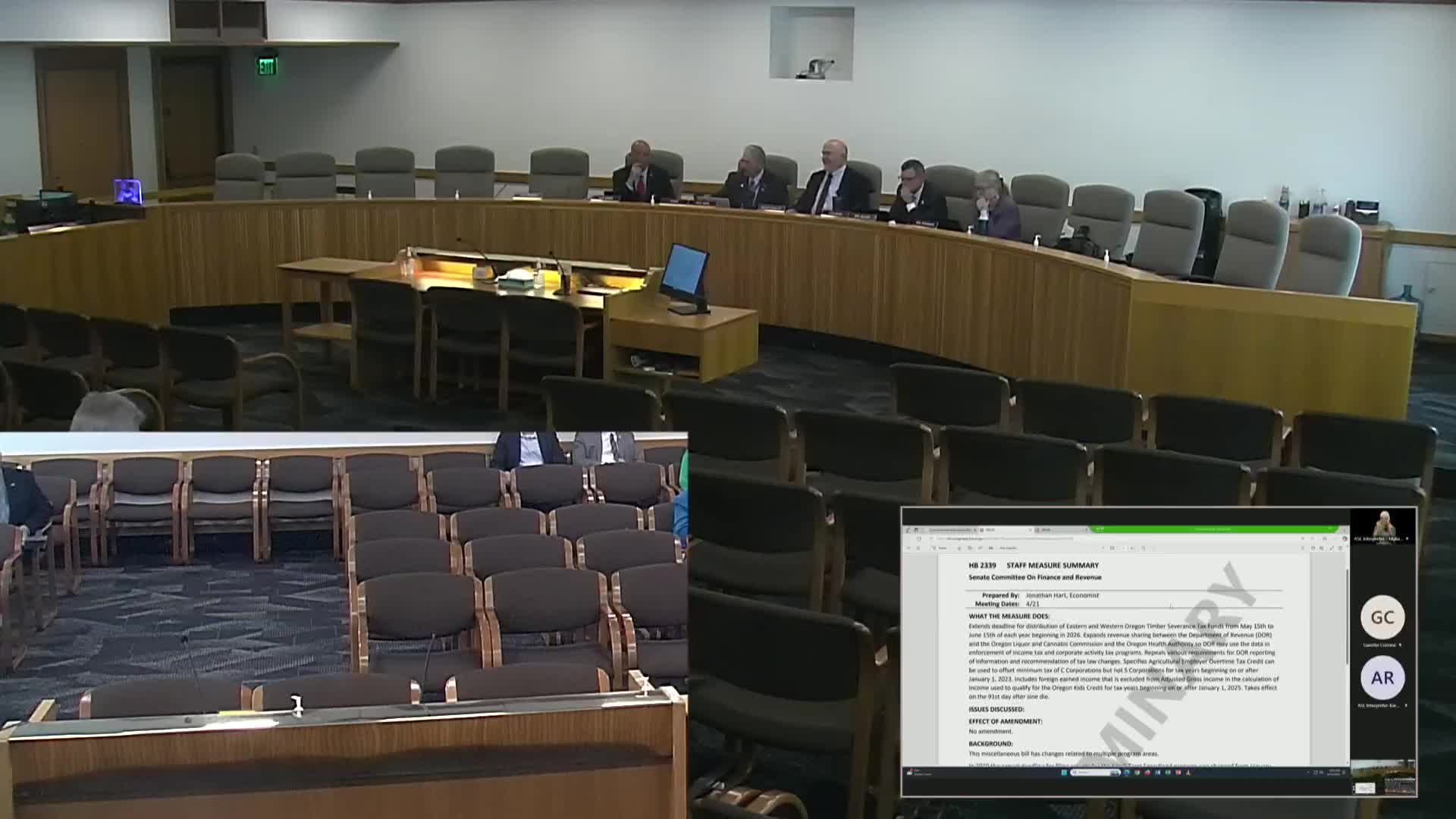Committee hears Department of Revenue bill with technical and reporting changes; small revenue increase identified
Get AI-powered insights, summaries, and transcripts
Subscribe
Summary
House Bill 2339, sponsored by the Department of Revenue, would make technical changes to statutes including timber severance fund calculations, data sharing for marijuana and psilocybin programs, reporting requirements, and a small revenue increase of about $100,000 per biennium through AGI calculation changes.
Marjorie Taylor of the Oregon Department of Revenue summarized House Bill 2339 at a public hearing before the Senate Committee on Finance and Revenue on April 21, describing the measure as a package of minor and technical statutory changes and one small revenue effect.
"Instead of proposing 5 separate bills, we just thought, gosh, let's give you 1 bill that makes some minor and technical changes to our existing statutes and programs," Marjorie Taylor said, and she invited committee questions and staff to assist on revenue details.
Taylor told the committee the bill updates timber severance fund balance and distribution calculations to align with a 2019 change; adds enforcement as a reason to share data in the marijuana and psilocybin programs with the Oregon Liquor and Cannabis Commission, Oregon Health Authority and Department of Revenue; changes reporting requirements in sections 6 through 14 and requires the Department of Revenue to make recommendations; and contains a technical clarification that a credit is not used against S corporation minimum tax.
She also noted a small revenue impact related to the Oregon KIDs credit: adding foreign-earned income to the AGI calculation means fewer households qualify for the credit and produces an estimated increase of about $100,000 per biennium (approximately $70,000 per year).
Committee members asked whether the revenue impact was positive; Taylor replied, "Positive," and staff confirmed the bill increases revenue.
The transcript record shows no committee vote on HB 2339; the public hearing was closed after the Department of Revenue testimony.
Why it matters: HB 2339 would make mostly technical statutory corrections and procedural changes across multiple programs administered or touched by the Department of Revenue, and it includes a small, positive revenue change tied to qualification for the Oregon KIDs credit.
